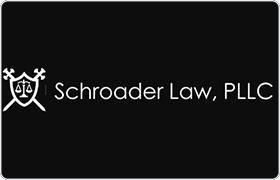Sumner Child Support Lawyer, Washington
Sponsored Law Firm
-
 x
x

Click For More Info:
-
Schroader Law, PLLC
1105 Tacoma Ave S Tacoma, WA 98402» view mapDivorce & Family Law Exceptional Legal Service
Schroader Law, PLLC offers superior service from start to finish. Attorney Schroader is a knowledgeable lawyer offering comprehensive legal advice with realistic expectations.
800-916-9671
Heather L. Swann
Social Security -- Disability, Family Law, Child Support, Corporate
Status: In Good Standing Licensed: 18 Years
Teena A. Johnson
Farms, Divorce, Child Support, Adoption, Divorce & Family Law
Status: In Good Standing Licensed: 24 Years
FREE CONSULTATION
CONTACTDouglas N. Kiger
Alimony & Spousal Support, Child Support, Corporate, Business Organization
Status: In Good Standing Licensed: 28 Years
Nicole M. Bolan
Collaborative Law, Alimony & Spousal Support, Child Support, Corporate
Status: In Good Standing Licensed: 20 Years
Rebecca Kaye Reeder
Divorce, Custody & Visitation, Child Support, Wills & Probate, Garnishment
Status: In Good Standing
Anthony J. Zorich
Adoption, Child Support, Farms, Divorce
Status: In Good Standing Licensed: 17 Years
 Dennis Schroader Tacoma, WA
Dennis Schroader Tacoma, WA Practice AreasExpertise
Practice AreasExpertise
